Archives: Courses
[Course Name]
Click on the Login button in the navigation menu to log in and access the conference content. Your login information can be found in the “Access Information” email.
Overview
Accreditation
In support of improving patient care, Boston Children’s Hospital is jointly accredited by the Accreditation Council for Continuing Medical Education (ACCME), the Accreditation Council for Pharmacy Education (ACPE), and the American Nurses Credentialing Center (ANCC), to provide continuing education for the healthcare team.

Physician
Boston Children’s Hospital designates this live activity for a maximum of 17.50 AMA PRA Category 1 Credits ™. Physicians should claim only credit commensurate with the extent of their participation in this activity.
Nurse
Boston Children’s Hospital designates this activity for 17.50 contact hours for nurses. Nurses should only claim credit commensurate with the extent of their participation in the activity.
Physician Assistant
Boston Children’s Hospital has been authorized by the American Academy of PAs (AAPA) to award AAPA Category 1 CME credits for activities planned in accordance with AAPA CME Criteria. This activity is designated for 17.50 AAPA Category 1 CME credits. PAs should only claim credit commensurate with the extent of their participation.
Credits
CME – AMA PRA Category 1 Credits™ (17.50 hours), Non-Physician (Attendance) (17.50 hours), CNE (Nursing) (17.50 hours), PA (Physician Assistant) (17.50 hours)
Disclosure Policy
Boston Children’s Hospital adheres to all ACCME Essential Areas, Standards, and Policies. It is Boston Children’s policy that those who have influenced the content of a CME activity (e.g. planners, faculty, authors, reviewers and others) disclose all relevant financial relationships with commercial entities so that Boston Children’s may identify and resolve any conflicts of interest prior to the activity. These disclosures will be provided in the activity materials along with disclosure of any commercial support received for the activity. Additionally, faculty members have been instructed to disclose any limitations of data and unlabeled or investigational uses of products during their presentations.
The following planners, speakers, and content reviewers, on behalf of themselves and their spouse or partner, have reported no relevant financial relationships with any entity producing, marketing, reselling, or distributing health care goods or services consumed by, or used on patients.
Course Faculty:
Zoom Information
Prior to the start of the webinar, please ensure that you have a zoom account. If you do not, please create one.
How to join and participate in a webinar
Evaluation Information:
At the completion of the live webinar a post-conference email from cmedepartment@childrens.harvard.edu will grant you access to the online evaluation. Once you complete the evaluation, your CE certificate will be automatically generated.
Support
For technical issues with this site, please contact: cmedepartment@childrens.harvard.edu.
You must be registered for the conference and logged in to this website to access course content. If you are having trouble logging in to this conference website, first please make sure:
- you are logging in to this conference site with the same email address used to register (see your registration confirmation)
- you are using the password in your access email to log in to this conference website
If you have successfully logged in to this website, but are unable to access content, you may have registered for a different conference package. Please check your registration confirmation email (if you did not receive a registration confirmation, please check your spam email folder).
Once you are logged in, this page can be accessed at any time from the Modules tab under the My Profile link at the top right of any page.
BCH Educational Technology Certificate Program
BUILDING BRIDGES OF UNDERSTANDING: BEHAVIORAL HEALTH EDUCATION FOR PEDIATRIC PRIMARY CARE
Click Login at the top of the page to log in and access the conference content. Your login information can be found in the “Access Information” email.
DESCRIPTION (See the References tab for research citations.) This introductory course for pediatric primary care practitioners (PPCPs) provides a comprehensive overview of the identification, assessment, and management of anxiety, depression and attention-deficit/hyperactivity disorder (ADHD) in the primary care setting. By completing this course, PPCPs can acquire the core mental health competencies1 essential for the safe and effective management of mild to moderate presentations of these common disorders. The course begins with the rationale for providing behavioral health services in pediatric primary care, including the preference of patients to receive behavioral health care in their convenient, trusted medical home. The course then proceeds to introduce a straightforward, four-step model of care for anxiety, depression, and ADHD in the pediatric setting, entailing screening, assessment, primary care treatment, and referral for specialty care treatment. The course includes detailed information about universal behavioral health screening for children and adolescents; guided self-management tools for preventive management of sub-clinical behavioral health concerns; focused behavioral health assessment for the primary care setting; and evidence-based, first-line medications for anxiety, depression, and ADHD. The course also provides an overview of evidence-based psychotherapies for these disorders to guide brief psychotherapeutic interventions by PPCPs, and an overview of adjunctive home and school-based supports. Indications for referral to specialty behavioral health care also are reviewed. The course concludes with a summary of the information presented, along with resources to support the provision of behavioral health care to pediatric patients, including a Clinical Manual for Pediatric Practitioners; a series of educational flyers for families on Understanding Anxiety, Depression, ADHD, and Behavior Problems; and Guided Self-Management Toolkits for Families. The course also recommends Clinical Practice Guidelines/Clinical Updates developed by the American Academy of Child and Adolescent Psychiatry2-4 and the American Academy of Pediatrics5 for advanced learning. Learning Objectives: At the conclusion of this course, participants will be able to: COURSE FORMAT (each session approximates 15-20 minutes in duration) COURSE BACKGROUND (See the References tab for research citations.) Psychiatric disorders are estimated to occur in 15 million children and adolescents in the United States, with annual total costs approximating $12 billion.6 Despite effective treatments, because of the protracted shortage of child-trained behavioral health specialists,7 many youth with psychiatric disorders receive no or untimely services.8 Untreated child and adolescent psychiatric disorders persist over decades, become increasingly intractable to treatment, and incur progressively greater social, educational, occupational, and economic consequences over time.9 More than one-half of pediatric primary care visits address behavioral health problems,and PPCPs write the majority of psychotropic medication prescriptions for youth.10 The psychiatric disorders presenting most commonly in pediatric practices are anxiety, depression, and ADHD, at least three-quarters of which are mild to moderate in severity. If PPCPs can become confident and skilled in identifying, assessing, and managing mild to moderate presentations of these disorders, then child and adolescent psychiatrists and other scarce specialty behavioral health resources could be conserved for the management of severe, complex, unsafe, and treatment-unresponsive disorders. In this way, PPCPs can play a key role in narrowing the gap between the millions of youths needing effective BH services and those receiving them. The Behavioral Health Education for Pediatric Primary Care course was developed by the Boston Children’s Hospital Department of Psychiatry and Behavioral Sciences and the Boston Children’s Hospital Pediatric Physicians’ Organization at Children’s (PPOC). The course was initially created as one of the three components (behavioral health education, child psychiatry consultation, integrated practice transformation) of a behavioral health integration program (BHIP) implemented in Massachusetts among the PPOC’s 500 PPCPs. The published findings from BHIP have demonstrated acquisition of target behavioral health knowledge, skills, and confidence by participating PPCPs, increased access to behavioral health services in the pediatric primary care setting, and high acceptability, feasibility, adoption, penetration, and sustainability of the program.11-13 Since the initial implementation in the PPOC, the educational course has been successfully exported to PPCPs in the Children’s Hospital Los Angeles, Connecticut Children’s Hospital, and Collier County, Florida pediatric practice networks. Suggested Audience: COURSE DIRECTOR Heather J. Walter, MD, MPH Senior Attending Psychiatrist, Boston Children’s Hospital Professor of Psychiatry, Harvard Medical School COURSE FACULTY David R. DeMaso, MD Psychiatrist-in-Chief Emeritus, Boston Children’s Hospital George P. Gardner – Olga E. Monks Professor of Child Psychiatry and Professor of Pediatrics, Harvard Medical School Erica Lee, PhD Attending Psychologist, Boston Children’s Hospital Assistant Professor of Psychology in Psychiatry, Harvard Medical School Keneisha Sinclair-McBride, PhD Attending Psychologist, Boston Children’s Hospital Assistant Professor of Psychology in Psychiatry, Harvard Medical School; Funding Graphic Design Video Production Online Course Development RELEASE DATEDescription
Course Format
Course Background
Faculty


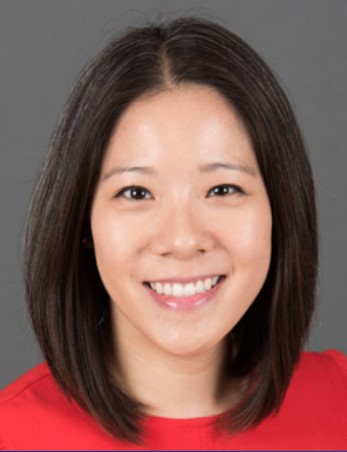
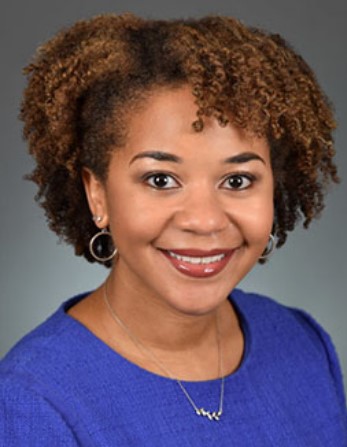
Acknowledgements
Release Date
Accreditation
In support of improving patient care, Boston Children’s Hospital is jointly accredited by the Accreditation Council for Continuing Medical Education (ACCME), the Accreditation Council for Pharmacy Education (ACPE), and the American Nurses Credentialing Center (ANCC) to provide continuing education for the healthcare team
.
Physician
Boston Children’s Hospital designates this live activity for a maximum of 5.00 AMA PRA Category 1 Credits ™. Physicians should claim only credit commensurate with the extent of their participation in this activity.
Nurse
Boston Children’s Hospital designates this activity for 5.00 contact hours for nurses. Nurses should only claim credit commensurate with the extent of their participation in the activity.
Physician Assistant
Boston Children’s Hospital has been authorized by the American Academy of PAs (AAPA) to award AAPA Category 1 CME credits for activities planned in accordance with AAPA CME Criteria. This activity is designated for 5.00 AAPA Category 1 CME credits. PAs should only claim credit commensurate with the extent of their participation.
Disclosure Policy
Boston Children’s Hospital adheres to all ACCME Essential Areas, Standards, and Policies. It is Boston Children’s policy that those who have influenced the content of a CME activity (e.g., planners, faculty, authors, reviewers, and others) disclose all relevant financial relationships with commercial entities so that Boston Children’s may identify and resolve any conflicts of interest prior to the activity. These disclosures will be provided in the activity materials, along with disclosure of any commercial support received for the activity. Additionally, faculty members have been instructed to disclose any limitations of data and unlabeled or investigational uses of products during their presentations.
The following planners, speakers, and content reviewers, on behalf of themselves and their spouse or partner, have reported no relevant financial relationships with any entity producing, marketing, reselling, or distributing health care goods or services consumed by, or used on patients.
| Heather J. Walter, MD, MPH | Erica Lee, PhD |
| David R. DeMaso, MD | Keneisha Sinclair-McBride, PhD |
CME Reviewer
Lesley Niccolini No Relevant Financial Relationships to Disclose
Greg Durkin (Nursing) No Relevant Financial Relationships to Disclose or as appropriate
Crystal Tom (Pharmacy) No Relevant Financial Relationships to Disclose or as appropriate
Pamela Charmarro (Social Work) No Relevant Financial Relationships to Disclose or as appropriate
Eugene D’Angelo (Psychology) No Relevant Financial Relationships to Disclose or as appropriate
References
Course Background:
- Foy JM, Green CM, Earls MF, et al. American Academy of Pediatrics Policy Statement. Mental health competencies for pediatric practice. Pediatrics. 2019;144(5):e20192757.
- Walter HJ, Bukstein OG, Abright AR, et al. Clinical practice guideline for the assessment and treatment of children and adolescents with anxiety disorders. J Am Acad Child Adolesc Psychiatry. 2020;59(10):1107-1124.
- Walter HJ, Abright AR, Bukstein OG, et al. Clinical practice guideline for the assessment and treatment of children and adolescents with major and persistent depressive disorders. J Am Acad Child Adolesc Psychiatry. In press.
- American Academy of Child and Adolescent Psychiatry (AACAP) Committee on Collaborative and Integrated Care and AACAP Committee on Quality Issues. Clinical Update: Collaborative mental health care for children and adolescents in pediatric primary care. J Am Acad Child Adolesc Psychiatry. 2023;62(2):91-119.
- American Academy of Pediatrics. Clinical practice guideline for the diagnosis, evaluation, and treatment of attention-deficit/hyperactivity disorder in children and adolescents. Pediatrics. 2019;144(4):20192528.
- Perou R, Bitsko RH, Blumberg SJ, et al. Mental health surveillance among children – United States, 2005-2011. MMWR Suppl. 2013;62(2):1-35.
- American Academy of Child and Adolescent Psychiatry. Severe shortage of child and adolescent psychiatrists illustrated in AACAP workforce maps, 2022. Available at: https://www.aacap.org/AACAP/zLatest_News/Severe_Shortage_Child_Adolescent_Psychiatrists_Illustrated_AACAP_Workforce_Maps.aspx.
- Wang PS, Berglund PA, Olfson M, et al. Delays in initial treatment contact after first onset of a mental disorder. Health Serv Res. 2004;39(2):393-415.
- Copeland WE, et al. Adult functional outcomes of common childhood psychiatric problems: a prospective, longitudinal study. JAMA Psychiatry. 2015;72(9):892-899.
- Olfson M, Blanco C, Wang S, et al. National trends in the mental health care of children, adolescents, and adults by office-based physicians. JAMA Psychiatry. 2014;71:81-90.
- Walter HJ, Kackloudis G, Trudell EK, et al. Enhancing pediatricians’ behavioral health competencies through child psychiatry consultation and education. Clin Pediatr. 2018;57(8):958-969.
- Walter HJ, Vernacchio L, Trudell EK, et al. Five-year outcomes of behavioral health integration in pediatric primary care. Pediatrics. 2019;144(1):e20183243.
- Walter HJ, Vernacchio L, Correa ET, et al. Five-phase replication of behavioral health integration in pediatric primary care. Pediatrics. 2021;148(2):e2020001073.
Please see the FAQs below for common questions about how to work through a course. If you have a question or issue that is not addressed in the FAQ, please use this form to submit a help request, or if your issue urgent, call the CE office at: 617-919-9908.
How do I navigate this course? There are two ways to access and navigate course content with the interactive table of contents: at the bottom of the main course page or in the sidebar on the right side of the page. Select the links in the table of contents to access the corresponding content. Depending on the course, access to content may be linear, in which case each content module or section can only be accessed if the prior ones are completed, or non-linear, in which case modules and sections can be accessed in any order. Use the breadcrumbs at the top of any course page to orient yourself within a course, or return to a previous course section or the main course page. How do I claim credit? If the course has been accredited, available credits will be displayed on the course home page. Select only those credits that apply to your profession, and click/tap “Apply Selection.” You may make your selection at any point while you are taking the course, or after you have completed it. How do I download a certificate? There are two ways to view/download your certificate: from within the course or from the course listing under your profile (select the document icon). In either case, you must have selected at least one available course credit type to generate a certificate. How do I view/print my transcript? You must be logged in to view your transcript. Select My Profile at the top of the page. If you do not see the transcript selector, be sure the Courses tab is selected. Select the type of credit and dates to include in your credit report. To include all credits from all time, leave the options blank. Select Download Transcript to view/download your transcript. Note each credit type in your transcripts starts a new page. How do I request a refund? Please email the CE Department to request a refund.How do I Navigate this Course?
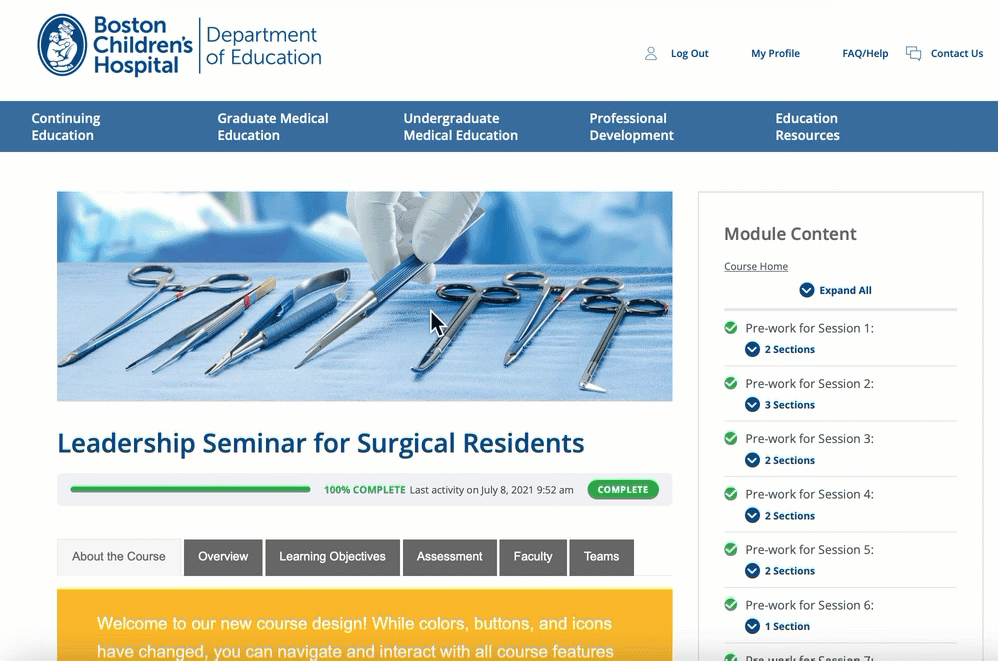
How do I claim credit for this course?
How do I download a certificate?
How do I view/print my transcript?
How do I request a refund?
RITA-T Live Zoom Training
Note: a course evaluation is required to receive credit for this course. Please read below for further instructions, and how to access the Zoom link and meeting.
You will need to download and print one (1) copy of the RITA-T Manual, which you should keep with you as you practice and administer the screening test. You will also need to print a minimum of six (6) scoring sheets for this training. However, you can print as many scoring sheets as you need for extra practice and/or future use.
Please take a moment to click on the link below to register. The Zoom link to join the training will be emailed to you after you have completed your registration. Thank you and we look forward to the training!
| DATE | ZOOM LINK |
| 6/8/2023 | When: June 8, 2023 9:00 AM Eastern Time (US and Canada) Register in advance for this meeting: https://bostonchildrens.zoom.us/meeting/register/tJEqduirpzkvH9xMyeejiuh-OcvYuuSVDBQF After registering, you will receive a confirmation email containing information about joining the meeting. |

In support of improving patient care, Boston Children’s Hospital is jointly accredited by the Accreditation Council for Continuing Medical Education (ACCME), the Accreditation Council for Pharmacy Education (ACPE), and the American Nurses Credentialing Center (ANCC), to provide continuing education for the healthcare team.
Physicians, Physician Assistants, and Nurse Practitioners
Boston Children’s Hospital designates this live activity for a maximum of 3.5 AMA PRA Category 1 Credits ™. Physicians should claim only credit commensurate with the extent of their participation in this activity.
Nurse
Boston Children’s Hospital designates this activity for 4.00 contact hours for nurses. Nurses should only claim credit commensurate with the extent of their participation in the activity.
Psychologist
Continuing Education (CE) credits for psychologists are provided through the co-sponsorship of the American Psychological Association (APA) Office of Continuing Education in Psychology (CEP). The APA CEP Office maintains responsibly for the content of the programs.
Social Worker
As a Jointly Accredited Organization, Boston Children’s Hospital is approved to offer social work continuing education by the Association of Social Work Boards (ASWB) Approved Continuing Education (ACE) program. Organizations, not individual courses, are approved under this program. State and provincial regulatory boards have the final authority to determine whether an individual course may be accepted for continuing education credit. Boston Children’s Hospital maintains responsibility for this course. Social workers completing this course receive 4.00 ACE CE continuing education credits.
Disclosures
The RITA-T is an empirically derived, level-2 interactive measure that has been developed to screen for autism spectrum disorders in toddlers 18 to 36 months of age. Early Childhood and Health care providers can become trained to administer the RITA-T, which can be integrated into diverse settings to better screen and identify toddlers who are high risk and need further diagnostic evaluation. The screening test consist of 9 items and takes about 10 minutes to administer and score. Each of the 9 activities designed to evaluate five developmental constructs known to represent early signs of ASD in toddlers 18-36 months.
This online training program has been designed to mirror the in-person training protocol as best as possible. The content provided, requirements for certification, and time required for completion are all equal to what is offered in the live training. Efforts have been made to provide trainees with enough content to answer questions without additional support, however we understand there may be times when there are specific questions and we will answer this questions in a reasonable amount of time. It is important to note that this is an interactive screening test, and you should seek further diagnostic testing and consult your pediatrician if you have concerns for ASD.
Boston Children’s Hospital adheres to all ACCME Essential Areas, Standards, and Policies. It is Boston Children’s policy that those who have influenced the content of a CME activity (e.g. planners, faculty, authors, reviewers and others) disclose all relevant financial relationships with commercial entities so that Boston Children’s may identify and resolve any conflicts of interest prior to the activity. These disclosures will be provided in the activity materials along with disclosure of any commercial support received for the activity. Additionally, faculty members have been instructed to disclose any limitations of data and unlabeled or investigational uses of products during their presentations.
The following planners, speakers, and content reviewers, on behalf of themselves, have reported the following relevant financial relationships with any entity producing, marketing, reselling, or distributing health care goods or services consumed by, or used on patients:
Speaker Name, Degree
Entity name, or None
Please see the FAQs below for common questions about how to work through a course. If you have a question or issue that is not addressed in the FAQ, please use this form to submit a help request, or if your issue is urgent, call the CME office at: 617-919-9908.
How do I navigate this course? There are two ways to access and navigate course content with the interactive table of contents: at the bottom of the main course page or in the sidebar on the right side of the page. Select the links in the table of contents to access the corresponding content. Depending on the course, access to content may be linear, in which case each content module or section can only be accessed if the prior ones are completed, or non-linear, in which case modules and sections can be accessed in any order. Use the breadcrumbs at the top of any course page to orient yourself within a course, or return to a previous course section or the main course page. How do I claim credit? If the course has been accredited, available credits will be displayed on the course home page. Select only those credits that apply to your profession, and click/tap “Apply Selection.” You may make your selection at any point while you are taking the course, or after you have completed it. How do I download a certificate? There are two ways to view/download your certificate: from within the course or from the course listing under your profile (select the document icon). In either case, you must have selected at least one available course credit type to generate a certificate. How do I view/print my transcript? You must be logged in to view your transcript. Select My Profile at the top of the page. If you do not see the transcript selector, be sure the Courses tab is selected. Select the type of credit and dates to include in your credit report. To include all credits from all time, leave the options blank. Select Download Transcript to view/download your transcript. Note each credit type in your transcripts starts a new page. How do I request a refund? Please email the CME Department to request a refund.How do navigate this course?

How do I claim credit for this course?
How do I download a certificate?
How do I view/print my transcript?
How do I request a refund?
Pediatric Stroke Champions 2024
Click on the Login To Enroll button above to log in and access the conference content.
*The course Post-Work will be available on August 23, 2024. The course will remain open November 25, 2024. Please select your credit type and download your certificate by November 25th.
Welcome and Orientation
Overview
Stroke is among the top ten causes of child mortality and may cause lifelong disability. Rapid recognition and the institution of new hyperacute treatments can improve outcomes, yet the diagnosis is often delayed or missed.
This course was created by expert faculty from the Boston Children’s Hospital Stroke and Cerebrovascular Center to support your development as an institutional champion for improving the care of children with pediatric stroke. You will leave with an action plan for an educational or clinical practice/quality improvement intervention and a certificate of successful completion. “Pediatric Stroke Champions” utilizes highly engaging learning methods that have been proven effective in promoting long-term knowledge gains.
Course Format
This highly interactive and personalized format combines an engaging live/synchronous online workshop component with flexible asynchronous opportunities for self-directed learning and interaction with subject matter experts. This course will empower participants to become “pediatric stroke champions” who will then disseminate knowledge and practice changes back to their home institutions through developing educational resources for their teams or creating stroke rapid response pathways.
Participants will first develop core background knowledge with self-paced pre-course learning through a combination of key references in multiple media, reflection on current practice and goals, and self-assessment knowledge questions. The live/synchronous portion of the course will be interactive and discussion-based with case examples, small group exercises, and panel discussions with faculty subject matter experts. Following the course, participants will continue to engage with faculty in a community of practice as they return to their home institutions to implement their action plans.
Objectives
Upon completion of this course, participants will be able to:
- Recognize the presenting signs and symptoms of possible pediatric stroke, particularly in high-risk populations such as children with sickle cell disease or congenital heart disease
- Initiate optimal evaluation, management, and possible referral of suspected pediatric stroke in response to presentations in various locations and contexts, including in-hospital, out-of-hospital, and emergency care
- Demonstrate awareness of long-term management and outcomes of pediatric stroke
- Partner with colleagues and systems at their home institution to raise awareness of pediatric stroke and plan responses to possible stroke presentations
Faculty

Miya Bernson-Leung, MD, EdM
Instructor in Neurology, Harvard Medical School; Program Director, Child Neurology Residency Training Program, Associate Medical Director, Continuing Medical Education, Boston Children’s Hospital

Hillary Horte, MS, FNP-C, SCRN
Nurse Practitioner, Department of Neurology, Boston Children’s Hospital

Riten Kumar, MD, MSc
Director, Thrombosis and Anticoagulation Program Associate Professor of Pediatrics, Harvard Medical School

Laura Lehman, MD
Outpatient Medical Director, Stroke and Cerebrovascular Center; Assistant, Department of Neurology, Boston Children’s Hospital; Assistant Professor of Neurology, Harvard Medical School

Michael Rivkin, MD
Senior Associate Physician in Medicine, Division of Emergency Medicine, Co-Director (and Founder) of the Stroke and Cerebrovascular Center; Director, Developmental Neuroimaging Laboratory, Boston Children’s Hospital; Professor of Neurology, Harvard Medical School

Christina VanderPluym, MD
Co-Director, Stroke and Cerebrovascular Center; Medical Director, Cardiac Antithrombosis Management and Monitoring Program (CAMP); Medical Director, Ventricular Assistive Device Program, Boston Children’s Hospital; Assistant Professor of Pediatrics, Harvard Medical School
In support of improving patient care, Boston Children’s Hospital is jointly accredited by the Accreditation Council for Continuing Medical Education (ACCME), the Accreditation Council for Pharmacy Education (ACPE), and the American Nurses Credentialing Center (ANCC), to provide continuing education for the healthcare team.
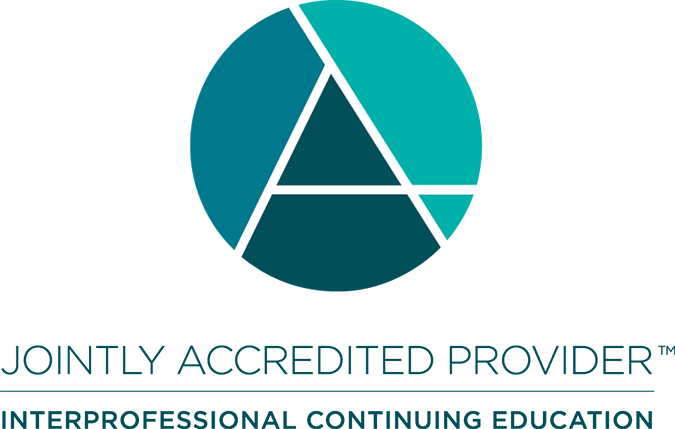
Physician
Boston Children’s Hospital designates this live activity for a maximum of 12.00 AMA PRA Category 1 Credits ™. Physicians should claim only credit commensurate with the extent of their participation in this activity.
Nurse
Boston Children’s Hospital designates this activity for 12.00 contact hours for nurses. Nurses should only claim credit commensurate with the extent of their participation in the activity.
Physician Assistant
Boston Children’s Hospital has been authorized by the American Academy of PAs (AAPA) to award AAPA Category 1 CME credits for activities planned in accordance with AAPA CME Criteria. This activity is designated for 12.00 AAPA Category 1 CME credits. PAs should only claim credit commensurate with the extent of their participation.
Social Work
As a Jointly Accredited Organization, Boston Children’s Hospital is approved to offer social work continuing education by the Association of Social Work Boards (ASWB) Approved Continuing Education (ACE) program. Organizations, not individual courses, are approved under this program. State and provincial regulatory boards have the final authority to determine whether an individual course may be accepted for continuing education credit. Boston Children’s Hospital maintains responsibility for this course. Social workers completing this course receive 12.00 ACE CE continuing education credits.
Physical Therapist
Physical Therapists completing this course receive 12.00 continuing education credits.
Disclosure Policy
Boston Children’s Hospital adheres to all ACCME Essential Areas, Standards, and Policies. It is Boston Children’s policy that those who have influenced the content of a CME activity (e.g., planners, faculty, authors, reviewers, and others) disclose all relevant financial relationships with commercial entities so that Boston Children’s may identify and resolve any conflicts of interest prior to the activity. These disclosures will be provided in the activity materials, along with disclosure of any commercial support received for the activity. Additionally, faculty members have been instructed to disclose any limitations of data and unlabeled or investigational uses of products during their presentations.
The following planners, speakers, and content reviewers, on behalf of themselves and their spouse or partner, have reported no relevant financial relationships with any entity producing, marketing, reselling, or distributing health care goods or services consumed by, or used on patients.
CME Reviewer
Lesley Niccolini No Relevant Financial Relationships to Disclose
Greg Durkin (Nursing) No Relevant Financial Relationships to Disclose or as appropriate
Crystal Tom (Pharmacy) No Relevant Financial Relationships to Disclose or as appropriate
Pamela Chamorro (Social Work) No Relevant Financial Relationships to Disclose or as appropriate
Eugene D’Angelo (Psychology) No Relevant Financial Relationships to Disclose or as appropriate
The following course faculty have reported disclosures:
| Name | Company and Relationship |
|---|---|
| Miya Bernson-Leung | Abbott Laboratories, stockholder; Abvie Inc, stockholder |
Please see the FAQs below for common questions about how to work through a course. If you have a question or issue that is not addressed in the FAQ, please use this form to submit a help request, or if your issue urgent, call the CE office at: 617-919-9908.
How do I navigate this course? There are two ways to access and navigate course content with the interactive table of contents: at the bottom of the main course page or in the sidebar on the right side of the page. Select the links in the table of contents to access the corresponding content. Depending on the course, access to content may be linear, in which case each content module or section can only be accessed if the prior ones are completed, or non-linear, in which case modules and sections can be accessed in any order. Use the breadcrumbs at the top of any course page to orient yourself within a course, or return to a previous course section or the main course page. How do I claim credit? If the course has been accredited, available credits will be displayed on the course home page. Select only those credits that apply to your profession, and click/tap “Apply Selection.” You may make your selection at any point while you are taking the course, or after you have completed it. How do I download a certificate? There are two ways to view/download your certificate: from within the course or from the course listing under your profile (select the document icon). In either case, you must have selected at least one available course credit type to generate a certificate. How do I view/print my transcript? You must be logged in to view your transcript. Select My Profile at the top of the page. If you do not see the transcript selector, be sure the Courses tab is selected. Select the type of credit and dates to include in your credit report. To include all credits from all time, leave the options blank. Select Download Transcript to view/download your transcript. Note each credit type in your transcripts starts a new page. How do I request a refund? Please email the CE Department to request a refund.How do I Navigate this Course?

How do I claim credit for this course?
How do I download a certificate?
How do I view/print my transcript?
How do I request a refund?
Department of Education Demonstration Module
Welcome!
Non-medical Opioid Use and Opioid Use Disorder in Adolescents
(Note: a course evaluation is required to receive credit for this course.)

Sharon Levy, MD, MPH
Director, Adolescent Substance Use and Addiction Program
Associate Professor in Pediatrics, Harvard Medical School
The most common focus when people discuss substance use is the impact it has on infants and adults, despite evidence of the impact adolescent substance use has on adults, and the increasing number of adolescents who meet diagnostic criteria for a substance use disorder. This presentation will focus on the neurobiological effects of opioid use in adolescents, as well as primary prevention, secondary prevention and treatment options. The presentation was recorded at Effective Pediatric Pain Management and End of Life Care 2021, on March 6, 2021.
Objectives:
At the conclusion of this educational program, learners will be able to:
- Explain what part of the brain develops during adolescence and how that relates to substance use.
- Describe how to screen for and intervene with teens that report non- medical opioid use.
- Discuss the importance of medication assisted treatment for opioid use disorders.

In support of improving patient care, Boston Children’s Hospital is jointly accredited by the Accreditation Council for Continuing Medical Education (ACCME), the Accreditation Council for Pharmacy Education (ACPE), and the American Nurses Credentialing Center (ANCC), to provide continuing education for the healthcare team.
Physician
Boston Children’s Hospital designates this live activity for a maximum of 0.5 AMA PRA Category 1 Credits ™. Physicians should claim only credit commensurate with the extent of their participation in this activity.
Risk Management
This activity meets the requirements for 0.5 Risk Management Credits as proscribed by the Massachusetts Board of Registration in Medicine and defined in 243 CMR 2.06(5)(d) I. Please check your individual state licensing board requirements before claiming these credits.
Nurse
Boston Children’s Hospital designates this activity for 0.5 contact hours for nurses. Nurses should only claim credit commensurate with the extent of their participation in the activity.
Physician Assistant
Boston Children’s Hospital has been authorized by the American Academy of PAs (AAPA) to award AAPA Category 1 CME credits for activities planned in accordance with AAPA CME Criteria. This activity is designated for 0.5 AAPA Category 1 CME credits. PAs should only claim credit commensurate with the extent of their participation.
Disclosure Policy
Boston Children’s Hospital adheres to all ACCME Essential Areas, Standards, and Policies. It is Boston Children’s policy that those who have influenced the content of a CE activity (e.g. planners, faculty, authors, reviewers and others) disclose all relevant financial relationships with commercial entities so that Boston Children’s may identify and resolve any conflicts of interest prior to the activity. These disclosures will be provided in the activity materials along with disclosure of any commercial support received for the activity. Additionally, faculty members have been instructed to disclose any limitations of data and unlabeled or investigational uses of products during their presentations.
Disclosure Statement
The following planners, speakers, and content reviewers, on behalf of themselves, have reported the following relevant financial relationships with any entity producing, marketing, reselling, or distributing health care goods or services consumed by, or used on patients:
Sharon Levy, MD, MPH
Consultant- Orexo
Please see the FAQs below for common questions about how to work through a course. If you have a question or issue that is not addressed in the FAQ, please use this form to submit a help request, or if your issue urgent, call the CE office at: 617-919-9908.
How do I navigate this course? There are two ways to access and navigate course content with the interactive table of contents: at the bottom of the main course page or in the sidebar on the right side of the page. Select the links in the table of contents to access the corresponding content. Depending on the course, access to content may be linear, in which case each content module or section can only be accessed if the prior ones are completed, or non-linear, in which case modules and sections can be accessed in any order. Use the breadcrumbs at the top of any course page to orient yourself within a course, or return to a previous course section or the main course page. How do I claim credit? If the course has been accredited, available credits will be displayed on the course home page. Select only those credits that apply to your profession, and click/tap “Apply Selection.” You may make your selection at any point while you are taking the course, or after you have completed it. How do I download a certificate? There are two ways to view/download your certificate: from within the course or from the course listing under your profile (select the document icon). In either case, you must have selected at least one available course credit type to generate a certificate. How do I view/print my transcript? You must be logged in to view your transcript. Select My Profile at the top of the page. If you do not see the transcript selector, be sure the Courses tab is selected. Select the type of credit and dates to include in your credit report. To include all credits from all time, leave the options blank. Select Download Transcript to view/download your transcript. Note each credit type in your transcripts starts a new page. How do I request a refund? Please email the CE Department to request a refund.How do I Navigate this Course?

How do I claim credit for this course?
How do I download a certificate?
How do I view/print my transcript?
How do I request a refund?
Screening for Adolescent Substance Use Disorders Durning Pain Management
(Note: a course evaluation is required to receive credit for this course.)

Diana Deister, MD, MS
Adolescent Substance Use and Addiction Program
Assistant in Medicine, Department of Pediatrics
Dr. Diana Deister reviews the epidemiology of substance use disorders, risk factors for development of substance use disorders in the pediatric pain population, diagnosis of substance use disorders, a brief screening tool to predict the risk of existing substance use disorders, and when to refer for additional treatment. The presentation was recorded at Effective Pediatric Pain Management and End of Life Care, on March 6, 2021.
Learning Objectives:
At the conclusion of this educational program, learners will be able to:
- Identify risk factors for development of substance use disorders (SUD’s) in the pediatric pain population.
- Describe local epidemiology regarding opioid death.
- Apply criteria for diagnosis of SUD’s.
- Use a brief screening tool to predict risk of existing SUD’s, and when to refer for additional treatment.

In support of improving patient care, Boston Children’s Hospital is jointly accredited by the Accreditation Council for Continuing Medical Education (ACCME), the Accreditation Council for Pharmacy Education (ACPE), and the American Nurses Credentialing Center (ANCC), to provide continuing education for the healthcare team.
Physician
Boston Children’s Hospital designates this live activity for a maximum of 0.75 AMA PRA Category 1 Credits ™. Physicians should claim only credit commensurate with the extent of their participation in this activity.
Risk Management
This activity meets the requirements for 0.75 Risk Management Credits as proscribed by the Massachusetts Board of Registration in Medicine and defined in 243 CMR 2.06(5)(d) I. Please check your individual state licensing board requirements before claiming these credits.
Nurse
Boston Children’s Hospital designates this activity for 0.75 contact hours for nurses. Nurses should only claim credit commensurate with the extent of their participation in the activity.
Physician Assistant
Boston Children’s Hospital has been authorized by the American Academy of PAs (AAPA) to award AAPA Category 1 CME credits for activities planned in accordance with AAPA CME Criteria. This activity is designated for 0.75 AAPA Category 1 CME credits. PAs should only claim credit commensurate with the extent of their participation.
Disclosure Policy
Boston Children’s Hospital adheres to all ACCME Essential Areas, Standards, and Policies. It is Boston Children’s policy that those who have influenced the content of a CE activity (e.g. planners, faculty, authors, reviewers and others) disclose all relevant financial relationships with commercial entities so that Boston Children’s may identify and resolve any conflicts of interest prior to the activity. These disclosures will be provided in the activity materials along with disclosure of any commercial support received for the activity. Additionally, faculty members have been instructed to disclose any limitations of data and unlabeled or investigational uses of products during their presentations.
Disclosure Statement
The following planners, speakers, and content reviewers, on behalf of themselves, have reported the following relevant financial relationships with any entity producing, marketing, reselling, or distributing health care goods or services consumed by, or used on patients:
Diana Deister, MD, MS
None
Please see the FAQs below for common questions about how to work through a course. If you have a question or issue that is not addressed in the FAQ, please use this form to submit a help request, or if your issue urgent, call the CE office at: 617-919-9908.Shortcode
How do I navigate this course? There are two ways to access and navigate course content with the interactive table of contents: at the bottom of the main course page or in the sidebar on the right side of the page. Select the links in the table of contents to access the corresponding content. Depending on the course, access to content may be linear, in which case each content module or section can only be accessed if the prior ones are completed, or non-linear, in which case modules and sections can be accessed in any order. Use the breadcrumbs at the top of any course page to orient yourself within a course, or return to a previous course section or the main course page. How do I claim credit? If the course has been accredited, available credits will be displayed on the course home page. Select only those credits that apply to your profession, and click/tap “Apply Selection.” You may make your selection at any point while you are taking the course, or after you have completed it. How do I download a certificate? There are two ways to view/download your certificate: from within the course or from the course listing under your profile (select the document icon). In either case, you must have selected at least one available course credit type to generate a certificate. How do I view/print my transcript? You must be logged in to view your transcript. Select My Profile at the top of the page. If you do not see the transcript selector, be sure the Courses tab is selected. Select the type of credit and dates to include in your credit report. To include all credits from all time, leave the options blank. Select Download Transcript to view/download your transcript. Note each credit type in your transcripts starts a new page. How do I request a refund? Please email the CE Department to request a refund.How do I Navigate this Course?

How do I claim credit for this course?
How do I download a certificate?
How do I view/print my transcript?
How do I request a refund?
Using Behavioral Medicine to Ease Pediatric Chronic Pain

Rupa Gambhir, PsyD
Staff Psychologist, Department of Anesthesiology, Critical Care and Pain Medicine
Instructor of Psychology, Department of Psychiatry, Harvard Medical School
Dr. Gambhir discusses behavioral medicine interventions for pediatric patients with chronic pain, including psychoeducation, relaxation, CBT, ACT, biofeedback, wellness and lifestyle modifications, and parental involvement. The presentation was recorded at Effective Pediatric Pain Management and End of Life Care 2021, on March 6, 2021.
Objective:
Learning Objectives:
At the conclusion of this educational program, learners will be able to:
- Identify patients for behavioral pain therapy

In support of improving patient care, Boston Children’s Hospital is jointly accredited by the Accreditation Council for Continuing Medical Education (ACCME), the Accreditation Council for Pharmacy Education (ACPE), and the American Nurses Credentialing Center (ANCC), to provide continuing education for the healthcare team.
Physician
Boston Children’s Hospital designates this live activity for a maximum of 0.5 AMA PRA Category 1 Credits ™. Physicians should claim only credit commensurate with the extent of their participation in this activity.
Risk Management
This activity meets the requirements for 0.5 Risk Management Credits as proscribed by the Massachusetts Board of Registration in Medicine and defined in 243 CMR 2.06(5)(d) I. Please check your individual state licensing board requirements before claiming these credits.
Nurse
Boston Children’s Hospital designates this activity for 0.5 contact hours for nurses. Nurses should only claim credit commensurate with the extent of their participation in the activity.
Physician Assistant
Boston Children’s Hospital has been authorized by the American Academy of PAs (AAPA) to award AAPA Category 1 CME credits for activities planned in accordance with AAPA CME Criteria. This activity is designated for 0.5 AAPA Category 1 CME credits. PAs should only claim credit commensurate with the extent of their participation.
Disclosure Policy
Boston Children’s Hospital adheres to all ACCME Essential Areas, Standards, and Policies. It is Boston Children’s policy that those who have influenced the content of a CE activity (e.g. planners, faculty, authors, reviewers and others) disclose all relevant financial relationships with commercial entities so that Boston Children’s may identify and resolve any conflicts of interest prior to the activity. These disclosures will be provided in the activity materials along with disclosure of any commercial support received for the activity. Additionally, faculty members have been instructed to disclose any limitations of data and unlabeled or investigational uses of products during their presentations.
Disclosure Statement
The following planners, speakers, and content reviewers, on behalf of themselves, have reported the following relevant financial relationships with any entity producing, marketing, reselling, or distributing health care goods or services consumed by, or used on patients:
Rupa Gambhir, PsyD
None
Please see the FAQs below for common questions about how to work through a course. If you have a question or issue that is not addressed in the FAQ, please use this form to submit a help request, or if your issue urgent, call the CE office at: 617-919-9908.
How do I navigate this course? There are two ways to access and navigate course content with the interactive table of contents: at the bottom of the main course page or in the sidebar on the right side of the page. Select the links in the table of contents to access the corresponding content. Depending on the course, access to content may be linear, in which case each content module or section can only be accessed if the prior ones are completed, or non-linear, in which case modules and sections can be accessed in any order. Use the breadcrumbs at the top of any course page to orient yourself within a course, or return to a previous course section or the main course page. How do I claim credit? If the course has been accredited, available credits will be displayed on the course home page. Select only those credits that apply to your profession, and click/tap “Apply Selection.” You may make your selection at any point while you are taking the course, or after you have completed it. How do I download a certificate? There are two ways to view/download your certificate: from within the course or from the course listing under your profile (select the document icon). In either case, you must have selected at least one available course credit type to generate a certificate. How do I view/print my transcript? You must be logged in to view your transcript. Select My Profile at the top of the page. If you do not see the transcript selector, be sure the Courses tab is selected. Select the type of credit and dates to include in your credit report. To include all credits from all time, leave the options blank. Select Download Transcript to view/download your transcript. Note each credit type in your transcripts starts a new page. How do I request a refund? Please email the CE Department to request a refund.How do I Navigate this Course?

How do I claim credit for this course?
How do I download a certificate?
How do I view/print my transcript?
How do I request a refund?
Pediatric Palliative Care Medicine
(Note: a course evaluation is required to receive credit for this course.)

Richard D. Goldstein, MD
Program Director, Robert’s Program
Assistant Professor of Pediatrics, Harvard Medical School
Dr. Goldstein discusses suffering as distinct from pain, and the need to identify, understand, and engage suffering in primary palliative care. The presentation was recorded at Effective Pediatric Pain Management and End of Life Care, on March 6, 2021.
Learning Objectives:
At the conclusion of this educational program, learners will be able to:
- Incorporate best practices for management of pediatric palliative care
- Identify and address suffering in our most vulnerable patients

In support of improving patient care, Boston Children’s Hospital is jointly accredited by the Accreditation Council for Continuing Medical Education (ACCME), the Accreditation Council for Pharmacy Education (ACPE), and the American Nurses Credentialing Center (ANCC), to provide continuing education for the healthcare team.
Physician
Boston Children’s Hospital designates this live activity for a maximum of 0.75 AMA PRA Category 1 Credits ™. Physicians should claim only credit commensurate with the extent of their participation in this activity.
Risk Management
This activity meets the requirements for 0.75 Risk Management Credits as proscribed by the Massachusetts Board of Registration in Medicine and defined in 243 CMR 2.06(5)(d) I. Please check your individual state licensing board requirements before claiming these credits.
Nurse
Boston Children’s Hospital designates this activity for 0.75 contact hours for nurses. Nurses should only claim credit commensurate with the extent of their participation in the activity.
Physician Assistant
Boston Children’s Hospital has been authorized by the American Academy of PAs (AAPA) to award AAPA Category 1 CME credits for activities planned in accordance with AAPA CME Criteria. This activity is designated for 0.75 AAPA Category 1 CME credits. PAs should only claim credit commensurate with the extent of their participation.
Disclosure Policy
Boston Children’s Hospital adheres to all ACCME Essential Areas, Standards, and Policies. It is Boston Children’s policy that those who have influenced the content of a CE activity (e.g. planners, faculty, authors, reviewers and others) disclose all relevant financial relationships with commercial entities so that Boston Children’s may identify and resolve any conflicts of interest prior to the activity. These disclosures will be provided in the activity materials along with disclosure of any commercial support received for the activity. Additionally, faculty members have been instructed to disclose any limitations of data and unlabeled or investigational uses of products during their presentations.
Disclosure Statement
The following planners, speakers, and content reviewers, on behalf of themselves, have reported the following relevant financial relationships with any entity producing, marketing, reselling, or distributing health care goods or services consumed by, or used on patients:
Richard Goldstein, MD
None
Please see the FAQs below for common questions about how to work through a course. If you have a question or issue that is not addressed in the FAQ, please use this form to submit a help request, or if your issue urgent, call the CE office at: 617-919-9908.
How do I navigate this course? There are two ways to access and navigate course content with the interactive table of contents: at the bottom of the main course page or in the sidebar on the right side of the page. Select the links in the table of contents to access the corresponding content. Depending on the course, access to content may be linear, in which case each content module or section can only be accessed if the prior ones are completed, or non-linear, in which case modules and sections can be accessed in any order. Use the breadcrumbs at the top of any course page to orient yourself within a course, or return to a previous course section or the main course page. How do I claim credit? If the course has been accredited, available credits will be displayed on the course home page. Select only those credits that apply to your profession, and click/tap “Apply Selection.” You may make your selection at any point while you are taking the course, or after you have completed it. How do I download a certificate? There are two ways to view/download your certificate: from within the course or from the course listing under your profile (select the document icon). In either case, you must have selected at least one available course credit type to generate a certificate. How do I view/print my transcript? You must be logged in to view your transcript. Select My Profile at the top of the page. If you do not see the transcript selector, be sure the Courses tab is selected. Select the type of credit and dates to include in your credit report. To include all credits from all time, leave the options blank. Select Download Transcript to view/download your transcript. Note each credit type in your transcripts starts a new page. How do I request a refund? Please email the CE Department to request a refund.How do I Navigate this Course?

How do I claim credit for this course?
How do I download a certificate?
How do I view/print my transcript?
How do I request a refund?
Dermatology: Don’t Miss It! When a Pediatrician Should Worry
(Note: a course evaluation is required to receive credit for this course.)

Jennifer Huang, MD
Attending Physician, Dermatology Program
Associate Professor of Dermatology, Harvard Medical School
Many pediatric care providers are unfamiliar with rare, but serious skin conditions in children. This is either because of the rarity of the conditions or inadequate exposure during pediatric residency or nurse practitioner training. This activity is case-based and focused on rare disorders such as neonatal purpura, neonatal blistering, unusual diaper rashes, lumps or bumps that might be malignant and reactive infectious mucocutaneous eruptions. It provides a thorough approach to skin disorders, emphasizing those a practitioner should worry about.
Learning Objectives:
At the conclusion of this educational program, learners will be able to:
- Identify malignant causes of neonatal purpura.
- Develop a systematic process in the evaluation of a diaper rash.
- Recognize infectious causes of mucocutaneous hypersensitivity reactions.

In support of improving patient care, Boston Children’s Hospital is jointly accredited by the Accreditation Council for Continuing Medical Education (ACCME), the Accreditation Council for Pharmacy Education (ACPE), and the American Nurses Credentialing Center (ANCC), to provide continuing education for the healthcare team.
Physician
Boston Children’s Hospital designates this live activity for a maximum of 0.5 AMA PRA Category 1 Credits ™. Physicians should claim only credit commensurate with the extent of their participation in this activity.
Disclosure Policy
Boston Children’s Hospital adheres to all ACCME Essential Areas, Standards, and Policies. It is Boston Children’s policy that those who have influenced the content of a CE activity (e.g. planners, faculty, authors, reviewers and others) disclose all relevant financial relationships with commercial entities so that Boston Children’s may identify and resolve any conflicts of interest prior to the activity. These disclosures will be provided in the activity materials along with disclosure of any commercial support received for the activity. Additionally, faculty members have been instructed to disclose any limitations of data and unlabeled or investigational uses of products during their presentations.
Disclosure Statement
The following planners, speakers, and content reviewers, on behalf of themselves, have reported the following relevant financial relationships with any entity producing, marketing, reselling, or distributing health care goods or services consumed by, or used on patients:
Jennifer Huang, MD
None
Please see the FAQs below for common questions about how to work through a course. If you have a question or issue that is not addressed in the FAQ, please use this form to submit a help request, or if your issue urgent, call the CE office at: 617-919-9908.
How do I navigate this course? There are two ways to access and navigate course content with the interactive table of contents: at the bottom of the main course page or in the sidebar on the right side of the page. Select the links in the table of contents to access the corresponding content. Depending on the course, access to content may be linear, in which case each content module or section can only be accessed if the prior ones are completed, or non-linear, in which case modules and sections can be accessed in any order. Use the breadcrumbs at the top of any course page to orient yourself within a course, or return to a previous course section or the main course page. How do I claim credit? If the course has been accredited, available credits will be displayed on the course home page. Select only those credits that apply to your profession, and click/tap “Apply Selection.” You may make your selection at any point while you are taking the course, or after you have completed it. m How do I download a certificate? There are two ways to view/download your certificate: from within the course or from the course listing under your profile (select the document icon). In either case, you must have selected at least one available course credit type to generate a certificate. How do I view/print my transcript? You must be logged in to view your transcript. Select My Profile at the top of the page. If you do not see the transcript selector, be sure the Courses tab is selected. Select the type of credit and dates to include in your credit report. To include all credits from all time, leave the options blank. Select Download Transcript to view/download your transcript. Note each credit type in your transcripts starts a new page. How do I request a refund? Please email the CE Department to request a refund.How do I Navigate this Course?

How do I claim credit for this course?
How do I download a certificate?
How do I view/print my transcript?
How do I request a refund?
Gastrointestinal Manifestations of Cystic Fibrosis
(Note: a course evaluation is required to receive credit for this course.)

Sabina Sabharwal, MD, MPH
Director, Cystic Fibrosis Center
Attending Physician, Division of Gastroenterology, Hepatology and Nutrition.
Instructor of Pediatrics, Harvard Medical School
This course is an overview of pancreatic, intestinal, hepatobiliary, and nutritional GI manifestations of cystic fibrosis. This will be inclusive of diagnosis, background, presentation, treatment and conclusion.
Learning Objectives:
At the conclusion of this educational program, learners will be able to:
- Identify the four categories of CF GI disease: Pancreatic, Intestinal, Hepatobiliary, and Nutritional.
- For each category, this module will prepare learners to evaluate background, presentation, diagnosis, and treatment options.

In support of improving patient care, Boston Children’s Hospital is jointly accredited by the Accreditation Council for Continuing Medical Education (ACCME), the Accreditation Council for Pharmacy Education (ACPE), and the American Nurses Credentialing Center (ANCC), to provide continuing education for the healthcare team.
Physician
Boston Children’s Hospital designates this live activity for a maximum of 0.75 AMA PRA Category 1 Credits ™. Physicians should claim only credit commensurate with the extent of their participation in this activity.
Physician Assistant
Boston Children’s Hospital has been authorized by the American Academy of PAs (AAPA) to award AAPA Category 1 CME credits for activities planned in accordance with AAPA CME Criteria. This activity is designated for 0.75 AAPA Category 1 CME credits. PAs should only claim credit commensurate with the extent of their participation.
Disclosure Policy
Boston Children’s Hospital adheres to all ACCME Essential Areas, Standards, and Policies. It is Boston Children’s policy that those who have influenced the content of a CE activity (e.g. planners, faculty, authors, reviewers and others) disclose all relevant financial relationships with commercial entities so that Boston Children’s may identify and resolve any conflicts of interest prior to the activity. These disclosures will be provided in the activity materials along with disclosure of any commercial support received for the activity. Additionally, faculty members have been instructed to disclose any limitations of data and unlabeled or investigational uses of products during their presentations.
Disclosure Statement
The following planners, speakers, and content reviewers, on behalf of themselves, have reported the following relevant financial relationships with any entity producing, marketing, reselling, or distributing health care goods or services consumed by, or used on patients:
Sabina Sabharwal, MD, MPH
None
Please see the FAQs below for common questions about how to work through a course. If you have a question or issue that is not addressed in the FAQ, please use this form to submit a help request, or if your issue is urgent, call the CE office at: 617-919-9908.
How do I navigate this course? There are two ways to access and navigate course content with the interactive table of contents: at the bottom of the main course page or in the sidebar on the right side of the page. Select the links in the table of contents to access the corresponding content. Depending on the course, access to content may be linear, in which case each content module or section can only be accessed if the prior ones are completed, or non-linear, in which case modules and sections can be accessed in any order. Use the breadcrumbs at the top of any course page to orient yourself within a course, or return to a previous course section or the main course page. How do I claim credit? If the course has been accredited, available credits will be displayed on the course home page. Select only those credits that apply to your profession, and click/tap “Apply Selection.” You may make your selection at any point while you are taking the course, or after you have completed it. How do I download a certificate? There are two ways to view/download your certificate: from within the course or from the course listing under your profile (select the document icon). In either case, you must have selected at least one available course credit type to generate a certificate. How do I view/print my transcript? You must be logged in to view your transcript. Select My Profile at the top of the page. If you do not see the transcript selector, be sure the Courses tab is selected. Select the type of credit and dates to include in your credit report. To include all credits from all time, leave the options blank. Select Download Transcript to view/download your transcript. Note each credit type in your transcripts starts a new page. How do I request a refund? Please email the CE Department to request a refund.How do I navigate this course?

How do I claim credit for this course?
How do I download a certificate?
How do I view/print my transcript?
How do I request a refund?
The Multisystem Inflammatory Syndrome in Children (MIS-C): an Unexpected Development in the SARS CoV-2 Pandemic
(Note: a course evaluation is required to receive credit for this course.)

Mary Beth Son, MD
Director, Services and Outreach;
Program Director, Rheumatology Program
Assistant Professor of Pediatrics, Harvard Medical School
The focus of this presentation is to discuss the emergence of MIS-C, the clinical characteristics of MIS-C, the pathophysiology of MIS-C, and the long term outcomes. The presentation was recorded at Advances in Pediatric Healthcare 2020, on Nov. 4-5, 2020.
Learning Objectives:
At the conclusion of this educational program, learners will be able to:
- Discuss the emergence of MIS-C.
- Discuss the clinical characteristics of MIS-C.
- Discuss the pathophysiology of MIS-C.
- Discuss long term outcomes.

In support of improving patient care, Boston Children’s Hospital is jointly accredited by the Accreditation Council for Continuing Medical Education (ACCME), the Accreditation Council for Pharmacy Education (ACPE), and the American Nurses Credentialing Center (ANCC), to provide continuing education for the healthcare team.
Physician
Boston Children’s Hospital designates this live activity for a maximum of 0.75 AMA PRA Category 1 Credits ™. Physicians should claim only credit commensurate with the extent of their participation in this activity.
Risk Management
This activity meets the requirements for 0.75 Risk Management Credits as proscribed by the Massachusetts Board of Registration in Medicine and defined in 243 CMR 2.06(5)(d) I. Please check your individual state licensing board requirements before claiming these credits.
Nurse
Boston Children’s Hospital designates this activity for 0.75 contact hours for nurses. Nurses should only claim credit commensurate with the extent of their participation in the activity.
Disclosure Policy
Boston Children’s Hospital adheres to all ACCME Essential Areas, Standards, and Policies. It is Boston Children’s policy that those who have influenced the content of a CE activity (e.g. planners, faculty, authors, reviewers and others) disclose all relevant financial relationships with commercial entities so that Boston Children’s may identify and resolve any conflicts of interest prior to the activity. These disclosures will be provided in the activity materials along with disclosure of any commercial support received for the activity. Additionally, faculty members have been instructed to disclose any limitations of data and unlabeled or investigational uses of products during their presentations.
Disclosure Statement
The following planners, speakers, and content reviewers, on behalf of themselves, have reported the following relevant financial relationships with any entity producing, marketing, reselling, or distributing health care goods or services consumed by, or used on patients:
Mary Beth Son, MD
None
Please see the FAQs below for common questions about how to work through a course. If you have a question or issue that is not addressed in the FAQ, please use this form to submit a help request, or if your issue is urgent, call the CE office at: 617-919-9908.
How do I navigate this course? There are two ways to access and navigate course content with the interactive table of contents: at the bottom of the main course page or in the sidebar on the right side of the page. Select the links in the table of contents to access the corresponding content. Depending on the course, access to content may be linear, in which case each content module or section can only be accessed if the prior ones are completed, or non-linear, in which case modules and sections can be accessed in any order. Use the breadcrumbs at the top of any course page to orient yourself within a course, or return to a previous course section or the main course page. How do I claim credit? If the course has been accredited, available credits will be displayed on the course home page. Select only those credits that apply to your profession, and click/tap “Apply Selection.” You may make your selection at any point while you are taking the course, or after you have completed it. How do I download a certificate? There are two ways to view/download your certificate: from within the course or from the course listing under your profile (select the document icon). In either case, you must have selected at least one available course credit type to generate a certificate. How do I view/print my transcript? You must be logged in to view your transcript. Select My Profile at the top of the page. If you do not see the transcript selector, be sure the Courses tab is selected. Select the type of credit and dates to include in your credit report. To include all credits from all time, leave the options blank. Select Download Transcript to view/download your transcript. Note each credit type in your transcripts starts a new page. How do I request a refund? Please email the CE Department to request a refund.How do navigate this course?

How do I claim credit for this course?
How do I download a certificate?
How do I view/print my transcript?
How do I request a refund?
Ocular Effects of Excessive Digital Device Use
(Note: a course evaluation is required to receive credit for this course.)

Isdin Oke, MD
Ophthalmologist, Department of Ophthalmology
Instructor of Ophthalmology, Harvard Medical School
Dr. Isdin Oke explores some of the ways in which the visual system in children and adolescents is affected by excessive use of digital technologies. The presentation was recorded at Problematic Interactive Media Use (PIMU): Gaming, Social Media, and More, on Oct. 15, 2021.
Learning Objectives:
At the conclusion of this educational program, learners will be able to:
- Understand how ocular structures grow and the visual system develops throughout childhood and adolescence.
- Identify the short- and long-term effects of digital device use on the eyes.
- Describe strategies to manage ocular systems.

In support of improving patient care, Boston Children’s Hospital is jointly accredited by the Accreditation Council for Continuing Medical Education (ACCME), the Accreditation Council for Pharmacy Education (ACPE), and the American Nurses Credentialing Center (ANCC), to provide continuing education for the healthcare team.
Physician
Boston Children’s Hospital designates this live activity for a maximum of 0.5 AMA PRA Category 1 Credits ™. Physicians should claim only credit commensurate with the extent of their participation in this activity.
Risk Management
This activity meets the requirements for 0.5 Risk Management Credits as proscribed by the Massachusetts Board of Registration in Medicine and defined in 243 CMR 2.06(5)(d) I. Please check your individual state licensing board requirements before claiming these credits.
Nurse
Boston Children’s Hospital designates this activity for 0.5 contact hours for nurses. Nurses should only claim credit commensurate with the extent of their participation in the activity.
Physician Assistant
Boston Children’s Hospital has been authorized by the American Academy of PAs (AAPA) to award AAPA Category 1 CME credits for activities planned in accordance with AAPA CME Criteria. This activity is designated for 0.5 AAPA Category 1 CME credits. PAs should only claim credit commensurate with the extent of their participation.
Psychologist
Continuing Education (CE) credits for psychologists are provided through the co-sponsorship of the American Psychological Association (APA) Office of Continuing Education in Psychology (CEP). The APA CEP Office maintains responsibly for the content of the programs. This course has been approved for 0.5 continuing education credits.
Social Worker
As a Jointly Accredited Organization, Boston Children’s Hospital is approved to offer social work continuing education by the Association of Social Work Boards (ASWB) Approved Continuing Education (ACE) program. Organizations, not individual courses, are approved under this program. State and provincial regulatory boards have the final authority to determine whether an individual course may be accepted for continuing education credit. Boston Children’s Hospital maintains responsibility for this course. Social workers completing this course receive 0.5 ACE CE continuing education credits.
Disclosure Policy
Boston Children’s Hospital adheres to all ACCME Essential Areas, Standards, and Policies. It is Boston Children’s policy that those who have influenced the content of a CE activity (e.g. planners, faculty, authors, reviewers and others) disclose all relevant financial relationships with commercial entities so that Boston Children’s may identify and resolve any conflicts of interest prior to the activity. These disclosures will be provided in the activity materials along with disclosure of any commercial support received for the activity. Additionally, faculty members have been instructed to disclose any limitations of data and unlabeled or investigational uses of products during their presentations.
Disclosure Statement
The following planners, speakers, and content reviewers, on behalf of themselves, have reported the following relevant financial relationships with any entity producing, marketing, reselling, or distributing health care goods or services consumed by, or used on patients:
Isdin Oke, MD
None
Please see the FAQs below for common questions about how to work through a course. If you have a question or issue that is not addressed in the FAQ, please use this form to submit a help request, or if your issue urgent, call the CE office at: 617-919-9908.
How do I navigate this course? There are two ways to access and navigate course content with the interactive table of contents: at the bottom of the main course page or in the sidebar on the right side of the page. Select the links in the table of contents to access the corresponding content. Depending on the course, access to content may be linear, in which case each content module or section can only be accessed if the prior ones are completed, or non-linear, in which case modules and sections can be accessed in any order. Use the breadcrumbs at the top of any course page to orient yourself within a course, or return to a previous course section or the main course page. How do I claim credit? If the course has been accredited, available credits will be displayed on the course home page. Select only those credits that apply to your profession, and click/tap “Apply Selection.” You may make your selection at any point while you are taking the course, or after you have completed it. How do I download a certificate? There are two ways to view/download your certificate: from within the course or from the course listing under your profile (select the document icon). In either case, you must have selected at least one available course credit type to generate a certificate. How do I view/print my transcript? You must be logged in to view your transcript. Select My Profile at the top of the page. If you do not see the transcript selector, be sure the Courses tab is selected. Select the type of credit and dates to include in your credit report. To include all credits from all time, leave the options blank. Select Download Transcript to view/download your transcript. Note each credit type in your transcripts starts a new page. How do I request a refund? Please email the CE Department to request a refund.How do I Navigate this Course?

How do I claim credit for this course?
How do I download a certificate?
How do I view/print my transcript?
How do I request a refund?
The Role of the Social Worker in Problematic Interactive Media Use
(Note: a course evaluation is required to receive credit for this course).

Lauren Mendoza, MSW, LCSW
Clinical Social Worker, Clinic for Interactive Media and Internet Disorders
This course will cover the treatment of PIMU cases through a social work lens, including crisis management strategies, ways to educate patients and families, and the involvement of additional services/resources in collaborative care. The presentation was recorded at Problematic Interactive Media Use (PIMU): Gaming, Social Media, and More, on Oct. 15, 2021.
Learning Objectives:
At the conclusion of this educational program, learners will be able to:
- Understand the different roles that a social worker can have in treating a PIMU case.
- Explain safety assessment, planning, prevention, coaching, psycho-education, and redirecting in crisis management.
- Discuss educational techniques, available resources/services, and processes for mandated reporting/documentation.

In support of improving patient care, Boston Children’s Hospital is jointly accredited by the Accreditation Council for Continuing Medical Education (ACCME), the Accreditation Council for Pharmacy Education (ACPE), and the American Nurses Credentialing Center (ANCC), to provide continuing education for the healthcare team.
Social Worker
As a Jointly Accredited Organization, Boston Children’s Hospital is approved to offer social work continuing education by the Association of Social Work Boards (ASWB) Approved Continuing Education (ACE) program. Organizations, not individual courses, are approved under this program. State and provincial regulatory boards have the final authority to determine whether an individual course may be accepted for continuing education credit. Boston Children’s Hospital maintains responsibility for this course. Social workers completing this course receive 0.75 ACE CE continuing education credits.
Psychologist
Continuing Education (CE) credits for psychologists are provided through the co-sponsorship of the American Psychological Association (APA) Office of Continuing Education in Psychology (CEP). The APA CEP Office maintains responsibly for the content of the programs. This course has been approved for 0.75 continuing education credits.
Physician
Boston Children’s Hospital designates this live activity for a maximum of 0.75 AMA PRA Category 1 Credits ™. Physicians should claim only credit commensurate with the extent of their participation in this activity.
Risk Management
This activity meets the requirements for 0.75 Risk Management Credits as proscribed by the Massachusetts Board of Registration in Medicine and defined in 243 CMR 2.06(5)(d) I. Please check your individual state licensing board requirements before claiming these credits.
Physician Assistant
Boston Children’s Hospital has been authorized by the American Academy of PAs (AAPA) to award AAPA Category 1 CME credits for activities planned in accordance with AAPA CME Criteria. This activity is designated for 0.75 AAPA Category 1 CME credits. PAs should only claim credit commensurate with the extent of their participation.
Nurse
Boston Children’s Hospital designates this activity for 0.75 contact hours for nurses. Nurses should only claim credit commensurate with the extent of their participation in the activity.
Disclosure Policy
Boston Children’s Hospital adheres to all ACCME Essential Areas, Standards, and Policies. It is Boston Children’s policy that those who have influenced the content of a CE activity (e.g. planners, faculty, authors, reviewers and others) disclose all relevant financial relationships with commercial entities so that Boston Children’s may identify and resolve any conflicts of interest prior to the activity. These disclosures will be provided in the activity materials along with disclosure of any commercial support received for the activity. Additionally, faculty members have been instructed to disclose any limitations of data and unlabeled or investigational uses of products during their presentations.
Disclosure Statement
The following planners, speakers, and content reviewers, on behalf of themselves, have reported the following relevant financial relationships with any entity producing, marketing, reselling, or distributing health care goods or services consumed by, or used on patients:
Lauren Mendoza, MSW, LCSW
None
Please see the FAQs below for common questions about how to work through a course. If you have a question or issue that is not addressed in the FAQ, please use this form to submit a help request, or if your issue urgent, call the CE office at: 617-919-9908.
How do I navigate this course? There are two ways to access and navigate course content with the interactive table of contents: at the bottom of the main course page or in the sidebar on the right side of the page. Select the links in the table of contents to access the corresponding content. Depending on the course, access to content may be linear, in which case each content module or section can only be accessed if the prior ones are completed, or non-linear, in which case modules and sections can be accessed in any order. Use the breadcrumbs at the top of any course page to orient yourself within a course, or return to a previous course section or the main course page. How do I claim credit? If the course has been accredited, available credits will be displayed on the course home page. Select only those credits that apply to your profession, and click/tap “Apply Selection.” You may make your selection at any point while you are taking the course, or after you have completed it. How do I download a certificate? There are two ways to view/download your certificate: from within the course or from the course listing under your profile (select the document icon). In either case, you must have selected at least one available course credit type to generate a certificate. How do I view/print my transcript? You must be logged in to view your transcript. Select My Profile at the top of the page. If you do not see the transcript selector, be sure the Courses tab is selected. Select the type of credit and dates to include in your credit report. To include all credits from all time, leave the options blank. Select Download Transcript to view/download your transcript. Note each credit type in your transcripts starts a new page. How do I request a refund? Please email the CE Department to request a refund.How do I Navigate this Course?

How do I claim credit for this course?
How do I download a certificate?
How do I view/print my transcript?
How do I request a refund?
What is Problematic Interactive Media Use (PIMU)? Is It a “New Normal”?

Michael Rich, MD, MPH
Director, Center on Media and Child Health (CMCH); Director, Video Intervention/Prevention Assessment (VIA), Co-Director, Clinic for Interactive Media and Internet Disorders (CIMAID), Attending Physician, Division of Adolescent/Young Adult Medicine, Boston Children’s Hospital; Associate Professor of Pediatrics, Part-time, Harvard Medical School
Dr. Michael Rich gives a brief overview of Problematic Interactive Media Use, its impact on children and adolescents, and some of the ways in which clinicians can identify, diagnosis, and treat PIMU in their patients. The presentation was recorded at Problematic Interactive Media Use (PIMU): Gaming, Social Media, and More, on 10/15/21.
Learning Objectives:
At the conclusion of this educational program, learners will be able to:
- Explain Problematic Interactive Media Use and its effects on physical, psychological, social, and academic health.
- Recognize adolescents’ motivations for using digital technology and identify different PIMU presentations and co-morbidities in patients.
- Discuss PIMU treatment strategies that promote the use of media and technology in a healthy way.

In support of improving patient care, Boston Children’s Hospital is jointly accredited by the Accreditation Council for Continuing Medical Education (ACCME), the Accreditation Council for Pharmacy Education (ACPE), and the American Nurses Credentialing Center (ANCC), to provide continuing education for the healthcare team.
Physicians
Boston Children’s Hospital designates this live activity for a maximum of 0.75 AMA PRA Category 1 Credits ™. Physicians should claim only credit commensurate with the extent of their participation in this activity.
Risk Management
This activity meets the requirements for 0.75 Risk Management Credits as proscribed by the Massachusetts Board of Registration in Medicine and defined in 243 CMR 2.06(5)(d) I. Please check your individual state licensing board requirements before claiming these credits.
Nurse
Boston Children’s Hospital designates this activity for 0.75 contact hours for nurses. Nurses should only claim credit commensurate with the extent of their participation in the activity.
Physician Assistant
Boston Children’s Hospital has been authorized by the American Academy of PAs (AAPA) to award AAPA Category 1 CME credits for activities planned in accordance with AAPA CME Criteria. This activity is designated for 0.75 AAPA Category 1 CME credits. PAs should only claim credit commensurate with the extent of their participation.
Psychologist
Continuing Education (CE) credits for psychologists are provided through the co-sponsorship of the American Psychological Association (APA) Office of Continuing Education in Psychology (CEP). The APA CEP Office maintains responsibly for the content of the programs. This course has been approved for 0.75 continuing education credits.
Social Worker
As a Jointly Accredited Organization, Boston Children’s Hospital is approved to offer social work continuing education by the Association of Social Work Boards (ASWB) Approved Continuing Education (ACE) program. Organizations, not individual courses, are approved under this program. State and provincial regulatory boards have the final authority to determine whether an individual course may be accepted for continuing education credit. Boston Children’s Hospital maintains responsibility for this course. Social workers completing this course receive 0.75 ACE CE continuing education credits.
Disclosure Policy
Boston Children’s Hospital adheres to all ACCME Essential Areas, Standards, and Policies. It is Boston Children’s policy that those who have influenced the content of a CE activity (e.g. planners, faculty, authors, reviewers and others) disclose all relevant financial relationships with commercial entities so that Boston Children’s may identify and resolve any conflicts of interest prior to the activity. These disclosures will be provided in the activity materials along with disclosure of any commercial support received for the activity. Additionally, faculty members have been instructed to disclose any limitations of data and unlabeled or investigational uses of products during their presentations.
Disclosure Statement
The following planners, speakers, and content reviewers, on behalf of themselves, have reported the following relevant financial relationships with any entity producing, marketing, reselling, or distributing health care goods or services consumed by, or used on patients:
Michael Rich, MD, MPH
None
The Digital Wellness Lab is supported by:
Age of Learning, The Alberta Teacher’s Association, AlphaEdison, Amazon Kids, Facebook, Facebook Reality Labs, Instagram, Joan Ganz Conney Center/Sesame Workshop, noggin, Optum Behavioral Health, Pinwheel, Point32Health/Harvard Pilgrim Health Care/Tufts Health Plan, Roblox, Ruderman Family Foundation, TikTok, Trend Micro Cares, and Walt Disney Entertainment.
Please see the FAQs below for common questions about how to work through a course. If you have a question or issue that is not addressed in the FAQ, please use this form to submit a help request, or if your issue urgent, call the CE office at: 617-919-9908.
How do I navigate this course? There are two ways to access and navigate course content with the interactive table of contents: at the bottom of the main course page or in the sidebar on the right side of the page. Select the links in the table of contents to access the corresponding content. Depending on the course, access to content may be linear, in which case each content module or section can only be accessed if the prior ones are completed, or non-linear, in which case modules and sections can be accessed in any order. Use the breadcrumbs at the top of any course page to orient yourself within a course, or return to a previous course section or the main course page. How do I claim credit? If the course has been accredited, available credits will be displayed on the course home page. Select only those credits that apply to your profession, and click/tap “Apply Selection.” You may make your selection at any point while you are taking the course, or after you have completed it. How do I download a certificate? There are two ways to view/download your certificate: from within the course or from the course listing under your profile (select the document icon). In either case, you must have selected at least one available course credit type to generate a certificate. How do I view/print my transcript? You must be logged in to view your transcript. Select My Profile at the top of the page. If you do not see the transcript selector, be sure the Courses tab is selected. Select the type of credit and dates to include in your credit report. To include all credits from all time, leave the options blank. Select Download Transcript to view/download your transcript. Note each credit type in your transcripts starts a new page. How do I request a refund? Please email the CE Department to request a refund.How do I Navigate this Course?

How do I claim credit for this course?
How do I download a certificate?
How do I view/print my transcript?
How do I request a refund?
Media Use Therapy for Problematic Interactive Media Use

Tarek Aly, MD, MPH
Psychiatrist, Mosaic Psychiatry; Associate, Digital Wellness Lab at Boston Children’s Hospital
In this course, Dr. Tarek Aly defines media use therapy through the modules listed in the MUT Manual and explains how it is used to treat Problematic Interactive Media Use (PIMU) cases. The presentation was recorded at Problematic Interactive Media Use (PIMU): Gaming, Social Media, and More, on 10/15/21.
Learning Objectives:
At the conclusion of this educational program, learners will be able to:
- Understand media use therapy through the modules in the MUT Manual: Assessment, Education, Intervention, Maintenance, and Closure.
- Expand upon general mental health evaluation and treatment by tailoring assessments, education, intervention, and maintenance to be related to PIMU.
- Discuss how culture, environment, medical comorbidities, and psychological and developmental issues may influence Problematic Interactive Media Use and media use therapy.

In support of improving patient care, Boston Children’s Hospital is jointly accredited by the Accreditation Council for Continuing Medical Education (ACCME), the Accreditation Council for Pharmacy Education (ACPE), and the American Nurses Credentialing Center (ANCC), to provide continuing education for the healthcare team.
Physician
Boston Children’s Hospital designates this live activity for a maximum of 0.5 AMA PRA Category 1 Credits ™ . Physicians should claim only credit commensurate with the extent of their participation in this activity.
Risk Management
This activity meets the requirements for 0.5 Risk Management Credits as proscribed by the Massachusetts Board of Registration in Medicine and defined in 243 CMR 2.06(5)(d) I. Please check your individual state licensing board requirements before claiming these credits.
Disclosure Policy
Boston Children’s Hospital adheres to all ACCME Essential Areas, Standards, and Policies. It is Boston Children’s policy that those who have influenced the content of a CE activity (e.g. planners, faculty, authors, reviewers and others) disclose all relevant financial relationships with commercial entities so that Boston Children’s may identify and resolve any conflicts of interest prior to the activity. These disclosures will be provided in the activity materials along with disclosure of any commercial support received for the activity. Additionally, faculty members have been instructed to disclose any limitations of data and unlabeled or investigational uses of products during their presentations.
Disclosure Statement
The following planners, speakers, and content reviewers, on behalf of themselves, have reported the following relevant financial relationships with any entity producing, marketing, reselling, or distributing health care goods or services consumed by, or used on patients:
Tarek Aly, MD, MPH
None
Please see the FAQs below for common questions about how to work through a course. If you have a question or issue that is not addressed in the FAQ, please use this form to submit a help request, or if your issue urgent, call the CE office at: 617-919-9908.
How do I navigate this course? There are two ways to access and navigate course content with the interactive table of contents: at the bottom of the main course page or in the sidebar on the right side of the page. Select the links in the table of contents to access the corresponding content. Depending on the course, access to content may be linear, in which case each content module or section can only be accessed if the prior ones are completed, or non-linear, in which case modules and sections can be accessed in any order. Use the breadcrumbs at the top of any course page to orient yourself within a course, or return to a previous course section or the main course page. How do I claim credit? If the course has been accredited, available credits will be displayed on the course home page. Select only those credits that apply to your profession, and click/tap “Apply Selection.” You may make your selection at any point while you are taking the course, or after you have completed it. How do I download a certificate? There are two ways to view/download your certificate: from within the course or from the course listing under your profile (select the document icon). In either case, you must have selected at least one available course credit type to generate a certificate. How do I view/print my transcript? You must be logged in to view your transcript. Select My Profile at the top of the page. If you do not see the transcript selector, be sure the Courses tab is selected. Select the type of credit and dates to include in your credit report. To include all credits from all time, leave the options blank. Select Download Transcript to view/download your transcript. Note each credit type in your transcripts starts a new page. How do I request a refund? Please email the CE Department to request a refund.How do I Navigate this Course?

How do I claim credit for this course?
How do I download a certificate?
How do I view/print my transcript?
How do I request a refund?
Intersex Traits, Genital Surgery: Who Gets to Decide & Why? Considerations in Surgical Care
(Note: a course evaluation is required to receive credit for this course).

Barbara Chubak, MD
Assistant Professor, Urology
Icahn School of Medicine at Mount Sinai

Anne-Marie Amies Oelschlager, MD, FACOG
Professor of Obstetrics & Gynecology
Pediatric & Adolescent Gynecology
Adjunct Professor of Pediatrics, University of Washington School of Medicine
In this debate, Dr. Anne-Marie Amies Oelschlager presents the four arguments that support parents as decision makers in the treatment of children with DSD diagnoses. Dr. Barbara Chubak makes the opposing argument by elaborating why and how pediatric patients born with intersex DSD conditions should be considered an exception to the general rule of parents being decision makers. The presentation was recorded at Intersex Traits (Differences in Sex Development); Clinical and ethical considerations in care across the lifespan, on Oct. 25-26, 2021.
Learning Objectives:
At the conclusion of this educational program, learners will be able to:
- Clarify the unique bioethical challenges of consent to surgery.
- Describe the moral foundation and flaws in parental proxy consent to healthcare for their children.
- Analyze the arguments for and against parents as decision makers in the treatment and care of pediatric patients with DSD diagnoses.

In support of improving patient care, Boston Children’s Hospital is jointly accredited by the Accreditation Council for Continuing Medical Education (ACCME), the Accreditation Council for Pharmacy Education (ACPE), and the American Nurses Credentialing Center (ANCC), to provide continuing education for the healthcare team.
Physician
Boston Children’s Hospital designates this live activity for a maximum of 0.75 AMA PRA Category 1 Credits ™. Physicians should claim only credit commensurate with the extent of their participation in this activity.
Risk Management
This activity meets the requirements for 0.75 Risk Management Credits as proscribed by the Massachusetts Board of Registration in Medicine and defined in 243 CMR 2.06(5)(d) I. Please check your individual state licensing board requirements before claiming these credits.
Physician Assistant
Boston Children’s Hospital has been authorized by the American Academy of PAs (AAPA) to award AAPA Category 1 CME credits for activities planned in accordance with AAPA CME Criteria. This activity is designated for 0.75 AAPA Category 1 CME credits. PAs should only claim credit commensurate with the extent of their participation.
Nurse
Boston Children’s Hospital designates this activity for 0.75 contact hours for nurses. Nurses should only claim credit commensurate with the extent of their participation in the activity.
Disclosure Policy
Boston Children’s Hospital adheres to all ACCME Essential Areas, Standards, and Policies. It is Boston Children’s policy that those who have influenced the content of a CE activity (e.g. planners, faculty, authors, reviewers and others) disclose all relevant financial relationships with commercial entities so that Boston Children’s may identify and resolve any conflicts of interest prior to the activity. These disclosures will be provided in the activity materials along with disclosure of any commercial support received for the activity. Additionally, faculty members have been instructed to disclose any limitations of data and unlabeled or investigational uses of products during their presentations.
Disclosure Statement
The following planners, speakers, and content reviewers, on behalf of themselves, have reported the following relevant financial relationships with any entity producing, marketing, reselling, or distributing health care goods or services consumed by, or used on patients:
Barbara M. Chuback, MD
Anne Marie Amies Oelschlager, MD
None
Consultant, Affiliate Risk Management Services
Expert Witness in Gardasil Trial
UpToDate Reviewer
Please see the FAQs below for common questions about how to work through a course. If you have a question or issue that is not addressed in the FAQ, please use this form to submit a help request, or if your issue urgent, call the CE office at: 617-919-9908.
How do I navigate this course? There are two ways to access and navigate course content with the interactive table of contents: at the bottom of the main course page or in the sidebar on the right side of the page. Select the links in the table of contents to access the corresponding content. Depending on the course, access to content may be linear, in which case each content module or section can only be accessed if the prior ones are completed, or non-linear, in which case modules and sections can be accessed in any order. Use the breadcrumbs at the top of any course page to orient yourself within a course, or return to a previous course section or the main course page. How do I claim credit? If the course has been accredited, available credits will be displayed on the course home page. Select only those credits that apply to your profession, and click/tap “Apply Selection.” You may make your selection at any point while you are taking the course, or after you have completed it. How do I download a certificate? There are two ways to view/download your certificate: from within the course or from the course listing under your profile (select the document icon). In either case, you must have selected at least one available course credit type to generate a certificate. How do I view/print my transcript? You must be logged in to view your transcript. Select My Profile at the top of the page. If you do not see the transcript selector, be sure the Courses tab is selected. Select the type of credit and dates to include in your credit report. To include all credits from all time, leave the options blank. Select Download Transcript to view/download your transcript. Note each credit type in your transcripts starts a new page. How do I request a refund? Please email the CE Department to request a refund.How do I Navigate this Course?

How do I claim credit for this course?
How do I download a certificate?
How do I view/print my transcript?
How do I request a refund?
Intersex Traits, Genital Surgery: Who Gets to Decide & Why? Considerations in Health Care
(Note: a course evaluation is required to receive credit for this course.)

David E. Sandberg, PhD
Department of Pediatrics, Division of Pediatric Psychology
Susan B. Meister Child Health Evaluation and Research Center
University of Michigan
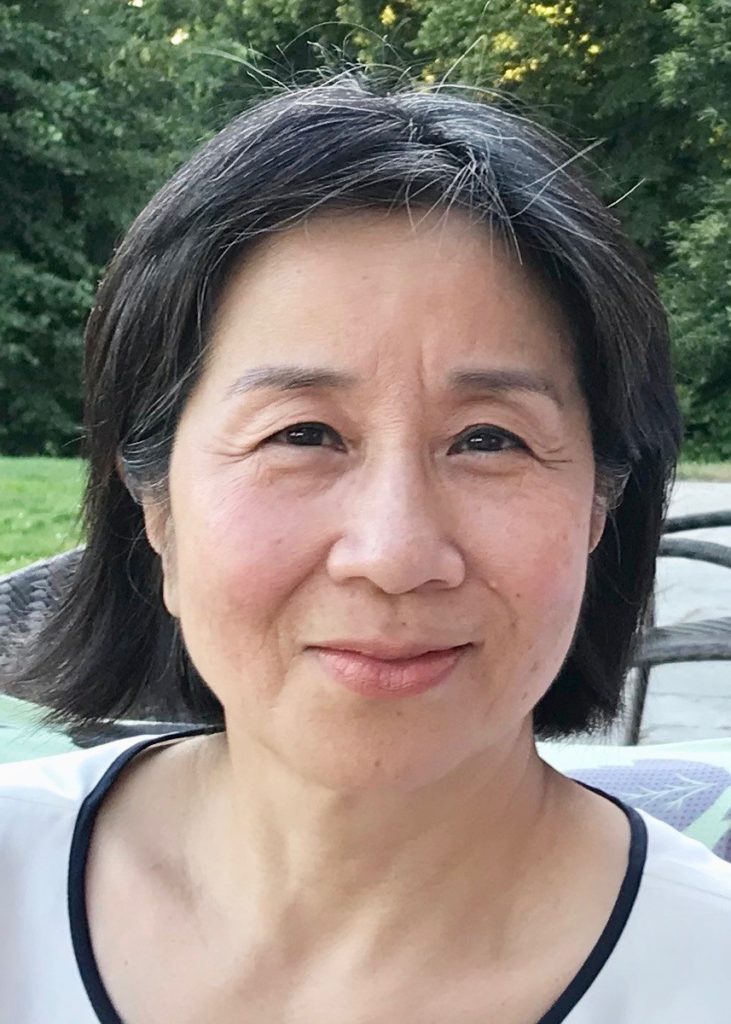
Lih-Mei Liao, PhD, FBPS
Clinical and Health Psychologist
Dr. David Sandberg uses research evidence to define the role of parents, patients, and providers in the decision making process regarding the care of patients with intersex traits (differences in sex development). Dr. Lih-Mei Liao describes the social and cultural influences on the treatment and care of patients with intersex traits. The presentation was recorded at Intersex Traits (Differences in Sex Development); Clinical and ethical considerations in care across the lifespan, on Oct. 25-26, 2021.
Learning Objectives:
At the conclusion of this educational program, learners will be able to:
- Identify the cultural and transactional influences on childhood genital surgery and the disadvantages of surgery.
- Recognize emotional constraints on informed consent.
- Analyze the roles that parents and clinicians have in the treatment decision making process of intersex patients.

In support of improving patient care, Boston Children’s Hospital is jointly accredited by the Accreditation Council for Continuing Medical Education (ACCME), the Accreditation Council for Pharmacy Education (ACPE), and the American Nurses Credentialing Center (ANCC), to provide continuing education for the healthcare team.
Physician
Boston Children’s Hospital designates this live activity for a maximum of 0.5 AMA PRA Category 1 Credits ™. Physicians should claim only credit commensurate with the extent of their participation in this activity.
Risk Management
This activity meets the requirements for 0.5 Risk Management Credits as proscribed by the Massachusetts Board of Registration in Medicine and defined in 243 CMR 2.06(5)(d) I. Please check your individual state licensing board requirements before claiming these credits.
Nurse
Boston Children’s Hospital designates this activity for 0.5 contact hours for nurses. Nurses should only claim credit commensurate with the extent of their participation in the activity.
Physician Assistant
Boston Children’s Hospital has been authorized by the American Academy of PAs (AAPA) to award AAPA Category 1 CME credits for activities planned in accordance with AAPA CME Criteria. This activity is designated for 0.5 AAPA Category 1 CME credits. PAs should only claim credit commensurate with the extent of their participation.
Disclosure Policy
Boston Children’s Hospital adheres to all ACCME Essential Areas, Standards, and Policies. It is Boston Children’s policy that those who have influenced the content of a CE activity (e.g. planners, faculty, authors, reviewers and others) disclose all relevant financial relationships with commercial entities so that Boston Children’s may identify and resolve any conflicts of interest prior to the activity. These disclosures will be provided in the activity materials along with disclosure of any commercial support received for the activity. Additionally, faculty members have been instructed to disclose any limitations of data and unlabeled or investigational uses of products during their presentations.
Disclosure Statement
The following planners, speakers, and content reviewers, on behalf of themselves, have reported the following relevant financial relationships with any entity producing, marketing, reselling, or distributing health care goods or services consumed by, or used on patients:
David E. Sandberg, PhD
Lih-Mei Liao, PhD, FBPS
None
None
Please see the FAQs below for common questions about how to work through a course. If you have a question or issue that is not addressed in the FAQ, please use this form to submit a help request, or if your issue urgent, call the CE office at: 617-919-9908.
How do I navigate this course? There are two ways to access and navigate course content with the interactive table of contents: at the bottom of the main course page or in the sidebar on the right side of the page. Select the links in the table of contents to access the corresponding content. Depending on the course, access to content may be linear, in which case each content module or section can only be accessed if the prior ones are completed, or non-linear, in which case modules and sections can be accessed in any order. Use the breadcrumbs at the top of any course page to orient yourself within a course, or return to a previous course section or the main course page. How do I claim credit? If the course has been accredited, available credits will be displayed on the course home page. Select only those credits that apply to your profession, and click/tap “Apply Selection.” You may make your selection at any point while you are taking the course, or after you have completed it. How do I view/print my transcript? You must be logged in to view your transcript. Select My Profile at the top of the page. If you do not see the transcript selector, be sure the Courses tab is selected. Select the type of credit and dates to include in your credit report. To include all credits from all time, leave the options blank. Select Download Transcript to view/download your transcript. Note each credit type in your transcripts starts a new page. How do I request a refund? Please email the CE Department to request a refund.How do I Navigate this Course?

How do I claim credit for this course?
How do I download a certificate?
How do I request a refund?
Intersex Traits, Genital Surgery: Who Gets to Decide & Why? Law & Policy
(Note: a course evaluation is required to receive credit for this course.)

Louise P. King, MD, JD
Director of Reproductive Bioethics
Center for Bioethics, Harvard Medical School

Julie A. Greenberg, JD
Emeritus Professor of Law
Thomas Jefferson School of Law
The goal of this presentation is to enhance learners’ understanding of the reproductive ethics surrounding genital, gonadal and reproductive anatomy and medical interventions, and how this informs the care of patients with intersex traits as well as the laws and policies around intersex patients and their care. The presentation was recorded at Intersex Traits (Differences in Sex Development); Clinical and ethical considerations in care across the lifespan, on Oct. 25-26, 2021.
Learning Objectives:
At the conclusion of this educational program, learners will be able to:
- Discuss the current legal rules that apply or should apply to the treatment of patients with intersex traits (differences of sex development).
- Analyze current treatment practices of patients with intersex traits in the context of reproductive ethics, adolescent autonomy, and historical events regarding reproductive rights.
- To encourage engagement in ethical and legal topics affecting intersex patients.

In support of improving patient care, Boston Children’s Hospital is jointly accredited by the Accreditation Council for Continuing Medical Education (ACCME), the Accreditation Council for Pharmacy Education (ACPE), and the American Nurses Credentialing Center (ANCC), to provide continuing education for the healthcare team.
Physician
Boston Children’s Hospital designates this live activity for a maximum of 0.75 AMA PRA Category 1 Credits ™. Physicians should claim only credit commensurate with the extent of their participation in this activity.
Risk Management
This activity meets the requirements for 0.75 Risk Management Credits as proscribed by the Massachusetts Board of Registration in Medicine and defined in 243 CMR 2.06(5)(d) I. Please check your individual state licensing board requirements before claiming these credits.
Physician Assistant
Boston Children’s Hospital has been authorized by the American Academy of PAs (AAPA) to award AAPA Category 1 CME credits for activities planned in accordance with AAPA CME Criteria. This activity is designated for 0.75 AAPA Category 1 CME credits. PAs should only claim credit commensurate with the extent of their participation.
Nurse
Boston Children’s Hospital designates this activity for 0.75 contact hours for nurses. Nurses should only claim credit commensurate with the extent of their participation in the activity.
Disclosure Policy
Boston Children’s Hospital adheres to all ACCME Essential Areas, Standards, and Policies. It is Boston Children’s policy that those who have influenced the content of a CE activity (e.g. planners, faculty, authors, reviewers and others) disclose all relevant financial relationships with commercial entities so that Boston Children’s may identify and resolve any conflicts of interest prior to the activity. These disclosures will be provided in the activity materials along with disclosure of any commercial support received for the activity. Additionally, faculty members have been instructed to disclose any limitations of data and unlabeled or investigational uses of products during their presentations.
Disclosure Statement
The following planners, speakers, and content reviewers, on behalf of themselves, have reported the following relevant financial relationships with any entity producing, marketing, reselling, or distributing health care goods or services consumed by, or used on patients:
Louise P. King, MD, JD
Julie A. Greenberg, JD
None
None
Please see the FAQs below for common questions about how to work through a course. If you have a question or issue that is not addressed in the FAQ, please use this form to submit a help request, or if your issue urgent, call the CE office at: 617-919-9908.
How do I navigate this course? There are two ways to access and navigate course content with the interactive table of contents: at the bottom of the main course page or in the sidebar on the right side of the page. Select the links in the table of contents to access the corresponding content. Depending on the course, access to content may be linear, in which case each content module or section can only be accessed if the prior ones are completed, or non-linear, in which case modules and sections can be accessed in any order. Use the breadcrumbs at the top of any course page to orient yourself within a course, or return to a previous course section or the main course page. How do I claim credit? If the course has been accredited, available credits will be displayed on the course home page. Select only those credits that apply to your profession, and click/tap “Apply Selection.” You may make your selection at any point while you are taking the course, or after you have completed it. How do I download a certificate? There are two ways to view/download your certificate: from within the course or from the course listing under your profile (select the document icon). In either case, you must have selected at least one available course credit type to generate a certificate. How do I view/print my transcript? You must be logged in to view your transcript. Select My Profile at the top of the page. If you do not see the transcript selector, be sure the Courses tab is selected. Select the type of credit and dates to include in your credit report. To include all credits from all time, leave the options blank. Select Download Transcript to view/download your transcript. Note each credit type in your transcripts starts a new page. How do I request a refund? Please email the CE Department to request a refund.How do I Navigate this Course?

How do I claim credit for this course?
How do I download a certificate?
How do I view/print my transcript?
How do I request a refund?
